An Introduction to Off-Page SEO and Its Importance in Online Success

In today’s highly competitive world of digital marketing, a strong online presence is vital for any business.
One of the most important pillars of this presence is #SEO (Search Engine Optimization).
Among these, #Off-Page_SEO, which refers to the set of activities performed outside your website to improve its ranking in search results, plays an indispensable role.
#Off-Page_SEO focuses on your website’s credibility, trust, and popularity with search engines.
This type of SEO goes beyond your site’s internal content and shows search engines that your site is a credible and reliable source.
Without sufficient attention to off-page optimization, even if your site’s internal content is excellent, achieving top rankings in search engines will be nearly impossible.
This educational section provides a complete explanation of why off-page SEO is important and how to implement it effectively.
Many webmasters believe that the main focus is on internal content, but the reality is that your domain’s authority and power are largely shaped through off-page SEO activities, including receiving backlinks from authoritative sites and other trust signals.
Understanding these principles is the first step towards a successful optimization strategy.
Are you bothered by losing customers due to your online store’s outdated appearance or slow speed? Rasavob’s expert team solves these problems with professional online store design!
✅ Increase customer trust and your brand’s credibility
✅ Blazing speed and excellent user experience
Get a free consultation with Rasavob now ⚡
Key Differences Between Off-Page SEO and On-Page SEO: An Analytical Look
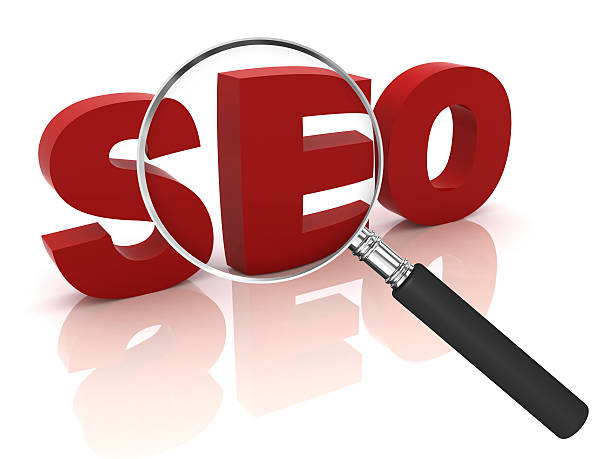
To deeply understand Off-Page SEO, we must first fully grasp its difference from On-Page SEO.
On-Page SEO refers to all optimizations performed within your site; including optimizing titles and meta descriptions, URL structure, content quality and relevance, keyword usage, image optimization, site loading speed, and user experience (UX).
These are directly under your control, and you can improve them with technical and content changes on your site.
In contrast, Off-Page SEO refers to activities that are outside your direct control and performed on other websites, but directly impact your site’s ranking.
The most important component of Off-Page SEO is receiving backlinks (External Links) from other sites.
Backlinks are a form of “vote of confidence” from other websites to you.
The more authoritative and relevant sites link to you, the more your Domain Authority and Page Authority increase with Google and other search engines.
In addition to backlinks, social media activity, Brand Mentions, and off-site content marketing are also effective factors in Off-Page SEO.
Understanding this distinction is vital because success in SEO requires a comprehensive approach that simultaneously covers both On-Page and Off-Page SEO.
Backlinks: The Backbone of Off-Page SEO and How to Build Them
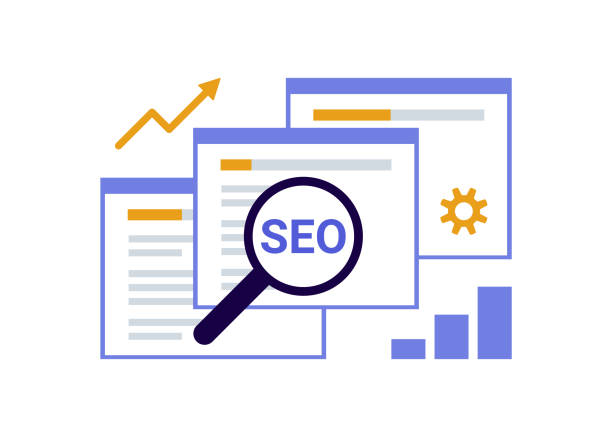
Undoubtedly, backlinks are the most important factor in Off-Page SEO.
A backlink is a link from one website to another.
Search engines consider backlinks as a vote of confidence or endorsement from other sites.
The greater the number and quality of incoming backlinks to your site, the higher your Domain Authority and Page Authority, which directly impacts your ranking in search results.
However, not all backlinks are created equal.
Backlink quality is more important than quantity.
One backlink from a highly authoritative site relevant to your field is tens of times more valuable than dozens of backlinks from spammy or irrelevant sites.
Backlink building strategies include various methods: from creating excellent content that naturally attracts links (Link Bait), to Guest Posting, Broken Link Building, infographic link building, and using reputable directories.
Implementing an effective strategy to acquire quality backlinks is time-consuming but yields lasting results for your Off-Page SEO.
This process should proceed naturally and sustainably to avoid Google penalties.
Table 1: Types of Backlinks and Their Characteristics
| Backlink Type | Description | SEO Value |
|---|---|---|
| Editorial Backlink | A link given without your request due to content quality. | Highest value, strong sign of authority. |
| Guest Post Link | A link placed in your guest article on another site. | High value, if the host site is authoritative. |
| Broken Link | Finding broken links on sites and suggesting replacing them with your content. | Good value, if executed correctly. |
| Directory Listing Link | Registering the site in reputable web directories. | Medium value, depends on the directory’s authority. |
Beyond Backlinks: Other Effective Signals in Off-Page SEO

Although backlinks are the backbone of Off-Page SEO, they are not the only factor.
Search engines, especially Google, have complex algorithms that consider various factors for ranking websites.
One of these important factors is Brand Mentions.
When your brand name is mentioned without a link in articles, news, forums, or social networks, Google considers it a positive signal indicating your brand’s popularity and credibility.
This means that even if no one links to you, simply talking about you can help your Off-Page SEO.
Social media activity also plays an important role, although social media links are usually NoFollow and do not directly transfer SEO value.
However, an active presence and interaction on social media can drive direct traffic to your site, make your content more visible and shareable, and ultimately lead to natural (Editorial Links) backlinks.
Off-site content marketing also includes publishing your valuable content on other platforms such as Medium, LinkedIn Pulse, or relevant news sites, which can help increase brand awareness and attract new backlinks.
This comprehensive approach to off-page optimization shows that success in it requires a multi-faceted strategy that thinks beyond mere link building and seeks to build overall brand credibility.
Understanding these other signals helps you build a more complete and sustainable off-page SEO strategy.
Does your current corporate website present a worthy image of your brand and attract new customers?
If not, with Rasavob’s professional corporate website design services, turn this challenge into an opportunity.
✅ Significantly improves your brand’s credibility and image.
✅ Paves the way for attracting new leads and customers.
⚡ Contact Rasavob now for a free and specialized consultation!
Controversial Content and Its Strategies in Off-Page SEO

Creating controversial or debatable content can be one of the most powerful strategies for attracting attention and natural backlinks in Off-Page SEO.
This type of content usually offers new, challenging, or even unconventional perspectives that elicit strong reactions, discussions, and widespread sharing.
When content creates such an impact, the likelihood of other websites, bloggers, and journalists linking to it increases dramatically.
Controversial content can include research reports with unexpected results, deep analyses with bold predictions, or articles that purposefully challenge common beliefs.
The main goal of this approach is to provoke emotions (positive or negative) and encourage engagement.
However, using this strategy requires precision and subtlety.
Your content must still have real value and provide credible information, not just be for attention-seeking.
Purely sensational content without substance may damage your brand’s reputation.
For example, you could publish a compelling statistical study on a specific field whose results are contrary to public expectation, or write a strong analytical article about the future of an industry that offers a different perspective than what everyone says.
This type of content is inherently controversial and leads to more content being produced around it, resulting in natural links for your off-page optimization.
This strategy is a fun and creative way to boost your Off-Page SEO.
The Role of News Media and Public Relations in Boosting Off-Page SEO

Beyond blogs and specialized sites, news media and public relations (PR) platforms can be very powerful sources for acquiring quality backlinks and boosting your Off-Page SEO.
When news related to your business – such as a new product launch, a major achievement, or the release of an important study – is published in a reputable news agency, in addition to increasing brand awareness, you receive a valuable backlink from a highly authoritative domain.
These types of backlinks are highly valued by Google and can significantly impact your site’s ranking.
To leverage this strategy, creating genuine and engaging news for the media is crucial.
This news must be “newsworthy”; meaning it has news value and is interesting to a wide audience.
Using Press Release Distribution Services and establishing connections with journalists and editors can help you disseminate news.
Also, collaborating with prominent influencers and bloggers in your field who have many followers and are recognized as credible sources can lead to increased visibility of your content and attracting valuable traffic and links.
PR and news strategies actually create a strong bridge between your business and the public media, which not only enhances your reputation and credibility but also directly helps strengthen Off-Page SEO and increase your domain authority.
This approach is particularly important in the news SEO section.
Advanced and Analytical Strategies for Off-Page SEO in a Competitive Landscape
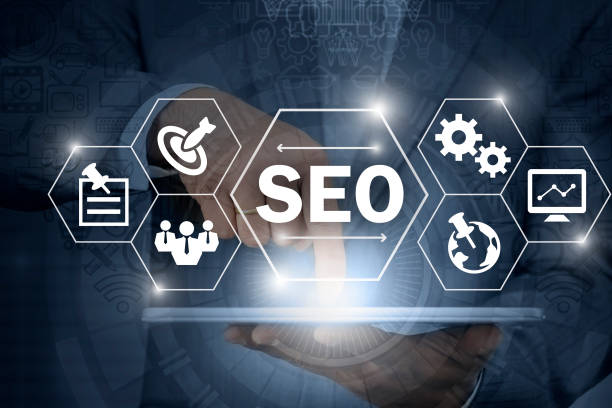
To compete in crowded markets and achieve outstanding results in Off-Page SEO, you need advanced and analytical strategies.
One of the most important of these approaches is Competitor Backlink Analysis.
Using tools like Ahrefs, SEMrush, or Moz, you can examine the backlink profile of your top competitors and identify their link sources.
This helps you find new opportunities to acquire links from the same or similar sources.
Also, regular Backlink Audit is essential for identifying and disavowing spam or toxic links.
Low-quality links can harm your site’s ranking and even lead to Google penalties.
Another advanced strategy is Reclaiming Lost Links.
If your old links have been lost due to changes on the source site or content removal, you can contact website administrators to request their restoration.
This analytical section shows that simply building links is not enough; continuous monitoring, analysis, and improvement are needed.
Using data for informed decision-making and adapting off-page SEO strategies to changes in Google’s algorithms is key to sustainable success in this area.
Additionally, investing in deep and specialized content that acts as a reference source in your industry will naturally attract quality links, and this itself is a powerful strategy in Off-Page SEO.
Table 2: Advanced Off-Page SEO Strategies
| Strategy | Description | Key Points |
|---|---|---|
| Competitor Backlink Analysis | Examining competitor backlink sources to identify opportunities. | Using professional tools, identifying potential PBNs. |
| Backlink Audit and Disavow | Identifying and disavowing spam or harmful links. | Important to prevent Google penalties, must be done carefully. |
| Resource-Based Link Building | Creating comprehensive and rich content recognized as a reference source. | Naturally attracting quality links from authoritative sites. |
| Advanced Outreach Strategies | Personalized contacts with webmasters and influencers. | Building long-term relationships, providing real value. |
Measuring and Monitoring Off-Page SEO Performance: The Key to Continuous Improvement
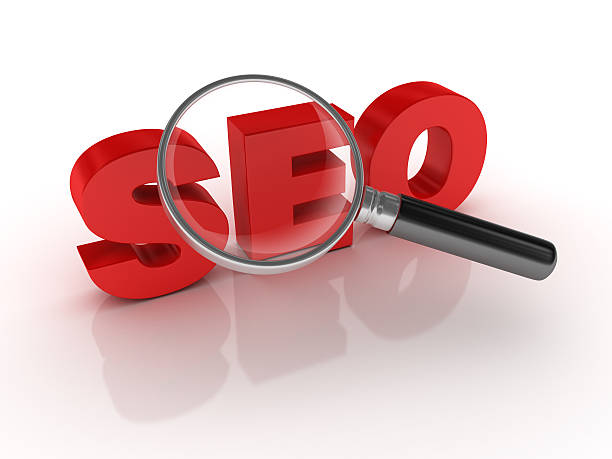
One of the most important aspects of any successful Off-Page SEO strategy is the ability to continuously measure and monitor its performance.
Without accurate data, you cannot understand which strategies have been effective and which need optimization.
Tools like Google Analytics, Google Search Console, Ahrefs, SEMrush, and Moz allow you to monitor key metrics related to off-page optimization.
These metrics include the number of new incoming backlinks, Domain Authority (DA/DR), Page Authority (PA/UR), Referral Traffic from backlinks, and keyword rankings in search engines.
Monitoring these indicators helps you evaluate the effectiveness of your link-building campaigns, identify spam or lost backlinks, and assess the impact of off-page SEO activities on your site’s ranking.
For example, if you observe that after running a news release campaign, referral traffic from news sites has increased and your domain authority has improved, it indicates the success of that campaign.
Regular and analytical reporting of this data enables evidence-based decisions for continuous improvement of your Off-Page SEO strategy.
This continuous monitoring process ensures that you are spending your resources effectively and are on the right track to achieve your SEO goals.
This analytical approach is essential for any SEO professional.
Don’t have a corporate website yet and missing out on online opportunities? With professional corporate website design by Rasavob,
✅ Double your business’s credibility
✅ Attract new customers
⚡ Free consultation for your corporate website!
The Future of Off-Page SEO: New Trends and Algorithmic Changes

The world of SEO is constantly changing, and Off-Page SEO is no exception.
With advancements in artificial intelligence and changes in Google’s algorithms, understanding future trends is vital to maintaining a competitive advantage.
One of the most important current and future trends is an increased focus on E-E-A-T (Experience, Expertise, Authoritativeness, and Trustworthiness).
Google seeks sources that not only have quality content but also demonstrate the necessary expertise and authority in their field from the author and website perspective.
This means that backlinks from reputable sites with high E-E-A-T will gain more value.
Also, signals related to brand mentions will become increasingly important, as they indicate your brand’s popularity and power in the online space.
Off-Page SEO in the future will move more towards a comprehensive approach to building overall brand credibility rather than just link building.
Artificial intelligence will also play an increasing role in detecting natural and spam link patterns, so adhering to ethical principles and avoiding black-hat techniques is more vital than ever.
Investing in deep and specialized content that naturally attracts links, and focusing on public relations and strong brand building, are strategies that will remain effective in the future and help strengthen your off-page optimization.
This news-oriented view of the future of SEO is essential.
Conclusion: A Guide to Building a Successful Off-Page SEO Strategy
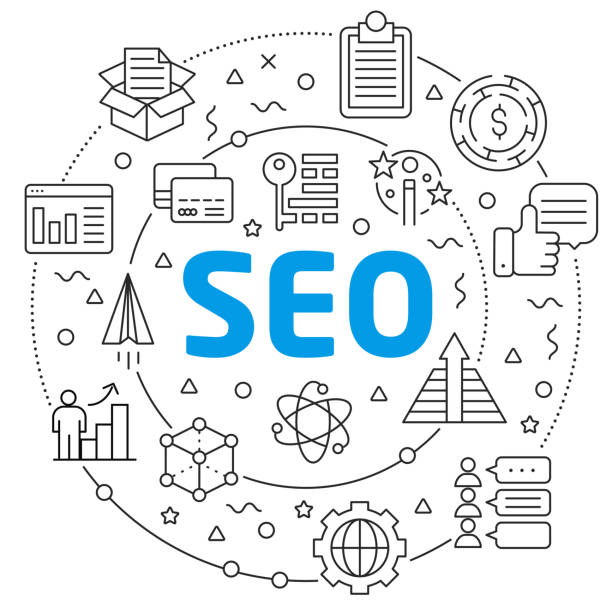
Ultimately, Off-Page SEO is an indispensable and vital element for the success of any website in search engines.
It goes beyond mere backlink building and includes creating credibility, trust, and authority for your brand across the web.
To build a successful and sustainable off-page SEO strategy, you must adopt a comprehensive approach that includes producing valuable and shareable content, acquiring quality backlinks from reputable and relevant sources, engaging in social media, paying attention to brand mentions, and leveraging public relations.
Continuous monitoring and precise analysis of your off-page SEO performance using appropriate tools are also highly important so you can continuously improve your strategies and keep pace with changes in search engine algorithms.
Remember that Off-Page SEO is a long-term process, and its results appear gradually, but its sustainability and quality make the investment worthwhile.
By correctly implementing these guidelines and focusing on building a natural and strong link profile, you can significantly increase your domain authority and ultimately achieve top rankings in search results, leading to increased traffic, visibility, and the success of your online business.
This guide is essential for those looking for a comprehensive strategy for Off-Page SEO.
Frequently Asked Questions
| Row | Question | Answer |
|---|---|---|
| 1 | What is Off-Page SEO? | Off-Page SEO refers to a set of actions performed outside your website to improve its ranking in search engines. These actions include backlink building, social media presence, branding, and more. |
| 2 | Why is Off-Page SEO highly important? | Off-Page SEO shows search engines that your website is credible, popular, and trustworthy. Quality backlinks from authoritative sites are a strong signal for better ranking and help increase your domain authority. |
| 3 | What are the most important components of Off-Page SEO? | The most important components of Off-Page SEO include: Link Building, Content Marketing, Social Media Marketing, Influencer Marketing, and Online Reputation Management. |
| 4 | What is a backlink and why is it important for Off-Page SEO? | A backlink is a link from another website that points to your website. These links act as “votes of confidence” in Google’s view and indicate the credibility of your content. The greater the number and quality of backlinks, the better your site’s ranking will be. |
| 5 | What are the types of backlinks in terms of SEO impact? | Two main types of backlinks include DoFollow and NoFollow. DoFollow backlinks pass authority (Link Juice) and directly impact ranking. NoFollows do not pass authority but can still generate traffic and help make the link profile appear natural. (Also UGC and Sponsored) |
| 6 | How can quality backlinks be built for a site? | To build quality backlinks, methods such as: creating excellent and shareable content, Guest Posting on relevant and authoritative sites, Broken Link Building, Digital PR, and competitor backlink analysis can be used. |
| 7 | What are toxic backlinks and how do they affect the site? | Toxic or spam backlinks are links that point to your site from low-quality, spammy, or irrelevant websites. These backlinks can harm your site’s ranking and even lead to penalties by Google’s algorithms. |
| 8 | What is the role of social networks in Off-Page SEO? | Although social signals (likes, shares, etc.) are not direct ranking factors, they help Off-Page SEO. They increase content visibility, drive direct traffic to the site, and ultimately increase the chances of acquiring natural backlinks and improving brand recognition. |
| 9 | What is the importance of diversity in a backlink profile? | Diversity in a backlink profile means that your links come from various sources (blogs, forums, news sites, directories), with diverse anchor texts, and with a mix of DoFollow and NoFollow links. This diversity shows Google that your link building is natural and organic. |
| 10 | What are common mistakes in Off-Page SEO that should be avoided? | Common mistakes include: buying backlinks in large volumes from low-quality sources, over-optimization with target keywords, neglecting quality in favor of quantity in backlink building, lack of diversity in the link profile, and ignoring toxic backlinks and not disavowing them. |
And other services of Rasavob Advertising Agency in the field of advertising
Smart Google Ads: Professional optimization for improved SEO ranking using Google Ad management.
Smart Direct Marketing: An effective tool to attract customers with attractive UI design.
Smart SEO: A combination of creativity and technology for user interaction through user experience customization.
Smart Conversion Rate Optimization: A creative platform to improve click-through rates with custom programming.
Smart Data Analysis: An effective tool for digital branding with marketing automation.
And over hundreds of other services in the field of internet advertising, advertising consultation, and organizational solutions
Internet Advertising | Advertising Strategy | Advertorials
Sources
Advanced Off-Page SEO Training
Off-Page Link Building Strategies
Importance of Backlinks in SEO
How to Increase Your Website Traffic
? In today’s competitive world, a powerful online presence is key to success. Rasaweb Afarin Digital Marketing Agency, by providing comprehensive and innovative solutions, including professional website design and targeted marketing strategies, accompanies your business on the path to growth and prominence.
📍 Tehran, Mirdamad Street, next to Central Bank, Kazeroun Jonoubi Alley, Ramin Alley, No. 6


